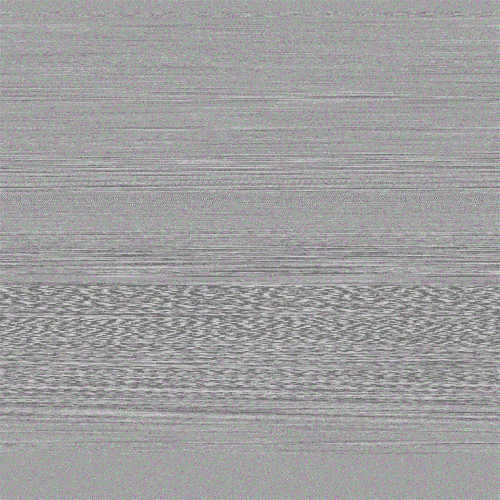
Saludos, Hivers. ¿Cómo les va? Espero que de maravilla. Les cuento que durante un tiempo, me prohibí a mí mismo escuchar ciertos tipos de música, debido a que mis únicos audífonos me parecían de gama muy baja para hacerle justicia a estos géneros. Hasta que hace unas semanas, me compré unos mejores y volví a escucharlos, uno de estos géneros, es el "Lowercase". Y escuchándolo, sus principios y conceptos me resultaron tan interesantes que dije: Hey, ¿por qué no hablo de esto en Hive? Y acá estoy. Sigue leyendo para que descubras la música de lo inaudible, el género que convierte lo que no puedes escuchar en música.
Greetings, Hivers, how are you doing? I hope it's going great. I'll tell you that for a while, I forbade myself to listen to certain types of music, because my only headphones seemed to me to be too low-quality to do justice to these genres. Until a few weeks ago, I bought better ones and started listening to them again, one of these genres is "Lowercase". And listening to it, its principles and concepts were so interesting to me that I said: Hey, why don't I talk about this in Hive? And here I am. Read on to discover the music of the inaudible, the genre that turns what you can't hear into music.
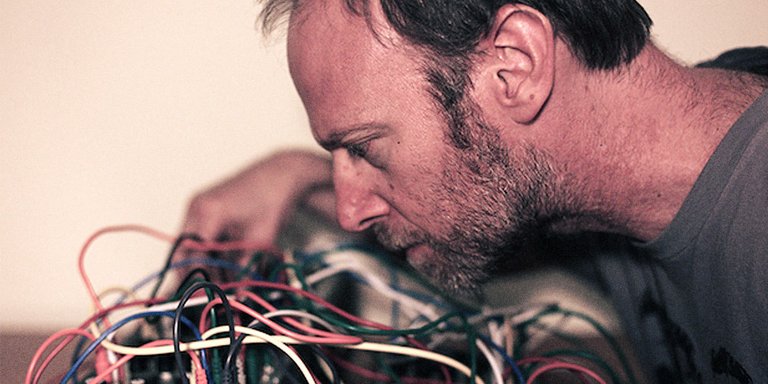
¿Qué es el Lowercase? | What is Lowercase?
Para explicar un poco lo que realmente significa "Lowercase", hay que aclarar que este es un género sumamente pequeño y su existencia se basa en técnicas de grabación y producción muy específicas. Es un género de nicho cultivado por muy pocos artistas, pero cuya metodología es sumamente interesante y da cabida a nuevas formas de experimentar la música. El género se llama "Lowercase" gracias a que esta misma palabra significa "minúsculas" en inglés. Este nombre se debe a la estética sonora de este género.
To explain a bit what "Lowercase" really means, we must clarify that this is an extremely small genre and its existence is based on very specific recording and production techniques. It is a niche genre cultivated by very few artists, but whose methodology is extremely interesting and gives room for new ways of experiencing music. The genre is called "Lowercase" referring to lowercase words. This name is due to the sound aesthetics of this genre.
Entonces, ¿en qué consiste este género? El lowercase, es un género asemejado al ambient, pero con tintes extremadamente minimalistas. El lowercase es un género cuyo propósito es amplificar sonidos que normalmente son inaudibles para los seres humanos. El resultado depende de cómo lo diseñe el artista, pero generalmente, estas piezas musicales suelen pertenecer al género del ambient, aunque en ocasiones, se hacen cosas muy creativas con este tipo de música. Al ser el Lowercase un género con una metodología tan específica y con estas posibilidades, dentro de él se pueden encontrar paisajes sonoros nunca antes escuchados. Los artistas del Lowercase utilizan micrófonos de contacto y herramientas de grabación con amplificación para, por ejemplo, grabar el sonido de plantas. El lowercase no necesariamente es un género que dependa de los sonidos normalmente inaudibles, puede enfocarse en otros sonidos tenues, como rumores o sonidos pequeños que son posteriormente amplificados de forma digital.
So, what does this genre consist of? The lowercase is a genre similar to ambient, but with extremely minimalist dyes. The lowercase is a genre whose purpose is to amplify sounds that are normally inaudible to humans. The result depends on how the artist designs it, but generally, these musical pieces usually belong to the ambient genre, although sometimes, very creative things are done with this type of music. Being the Lowercase a genre with such a specific methodology and with these possibilities, within it you can find soundscapes never heard before. Lowercase artists use contact microphones and recording tools with amplification to, for example, record the sound of plants. Lowercase is not necessarily a genre that relies on normally inaudible sounds, it can focus on other faint sounds, such as rumors or small sounds that are later digitally amplified.
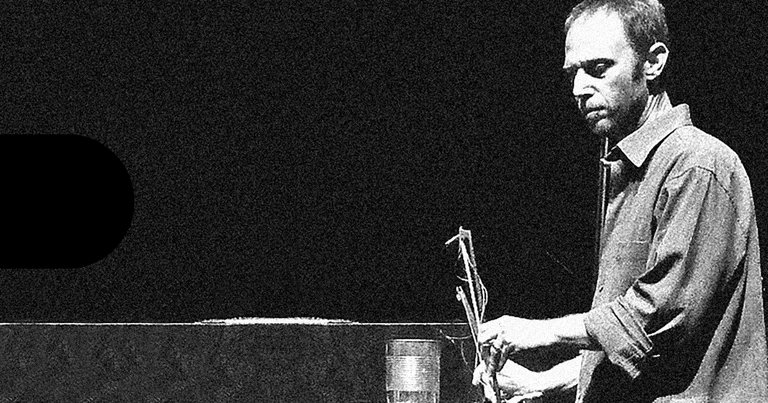
Un poco de historia | A little bit of history
Los orígenes del Lowercase son un poco difusos, no es un género especialmente estudiado. Sin embargo, el término se le atribuye a Steve Roden, el artista más emblemático de este género y quien fundó las bases del mismo. El género tuvo algo de popularidad dentro del mundo del arte sonoro gracias a su disco Forms Of Paper, un disco estrenado en el 2001, el cual consiste en la grabación con micrófonos de contacto de diversas formas de manipulación del papel.
The origins of Lowercase are a bit blurry, it is not a particularly studied genre. However, the term is attributed to Steve Roden, the most emblematic artist of this genre and who established its foundations. In 2001, the genre gained some popularity in the world of sound art thanks to his album Forms Of Paper, an album released in 2001, which consists of the recording with contact microphones of various forms of paper manipulation.
Aunque Steve sea la figura más prominente del género y sea a quien se le atribuye el mismo, se tienen registros de obras anteriores las cuales son consideradas "Lowercase". El disco más antiguo del género del que yo tengo conocimiento, es "Un Peu de Neige Salie", de Bernhard Günter. Un disco que pertenece a un género similar al Lowercase, llamado "Microsound", el cual tiene bases muy parecidas a las del Lowercase, con la diferencia de que este género está centrado en microsonidos generados por computadoras y sintetizadores.
Although Steve is the most prominent figure in the genre and is the one to whom the genre is attributed, there are records of earlier works which are considered "Lowercase". The oldest record of the genre that I am aware of is Bernhard Günter's "Un Peu de Neige Salie". An album that belongs to a genre similar to Lowercase, called "Microsound", which has very similar bases to those of Lowercase, with the difference that this genre is centered on computer-generated micro-sounds and synthesizers.
Existen otras figuras prominentes en el mundo del Lowercase que han estado un tiempo antes de que Steve Roden fuese el que llevase el estandarte del género. El más notable es el español Francisco López, un músico experimental quien ha dedicado su carrera principalmente a grabar sonidos de la naturaleza.
There are other prominent figures in the Lowercase world who have been around for a while before Steve Roden was the one to carry the genre's banner. The most notable is Spain's Francisco Lopez, an experimental musician who has devoted his career primarily to recording nature sounds.
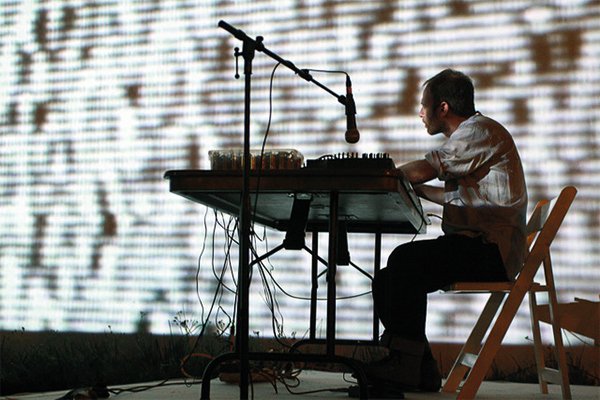
El sonido | The sound
El sonido del Lowercase se asemeja mucho al ambient, generalmente. Sin embargo, hay artistas del género que se centran meramente en hacer grabaciones de la naturaleza y de atmósferas varias. Algunos artistas de Lowercase manipulan poco o nada sus grabaciones y pueden dejarte con resultados como el sonido de un gota corriendo por una pared. Por supuesto, están los que manipulan estos sonidos mucho más, crean melodías, ritmos y lo que gusten con lo que graban. Un caso evidente es "Forms of Light", un disco de Steve Roden de la misma naturaleza de Forms of Paper, solo que esta vez, la grabación es con dos bombillos. Steve graba los sonidos de sus uñas al tocar el vidrio de los bombillos, el sonido de la electricidad corriendo y el sonido de las roscas, para formar sus propios paisajes sonoros. Al ser un género que va más de cómo es creado que de reglas musicales, este género puede tener muchísimas variaciones, pero hasta ahora, estas han sido las más comunes.
The sound of Lowercase is very similar to ambient, generally speaking. However, there are artists in the genre who focus purely on making recordings of nature and various atmospheres. Some Lowercase artists manipulate their recordings little or not at all and can leave you with results like the sound of a water drop running down a wall. Of course, there are those who manipulate these sounds much more, creating melodies, rhythms and whatever they like with what they record. An obvious case is "Forms of Light", an album by Steve Roden of the same nature as Forms of Paper, only this time, the recording is with two light bulbs. Steve records the sounds of his fingernails touching the glass of the light bulbs, the sound of electricity running and the sound of the threads, to form his own soundscapes. Being a genre that is more about how it is created than musical rules, this genre can have many variations, but so far, these have been the most common.
Gracias por leer | Thanks for reading
Fin de la carrera, muchas gracias por llegar hasta el final. Espero te haya gustado este post y hayas encontrado interesante este tema del lowercase. Como nota adicional, dejaré este enlace, el cual los llevará a un listado rankeado de álbumes de Lowercase, en el sitio web RateYourMusic, red social y base de datos que yo uso con muchísima frecuencia. Sin más que decir, hasta la próxima y un saludo.
End of the race, thank you very much for making it to the end. I hope you liked this post and found this lowercase topic interesting. As a side note, I will leave this link, which will take you to a ranked list of Lowercase albums, on the website RateYourMusic, a social network and database that I use very, very frequently. Without more to say, until next time and best regards.
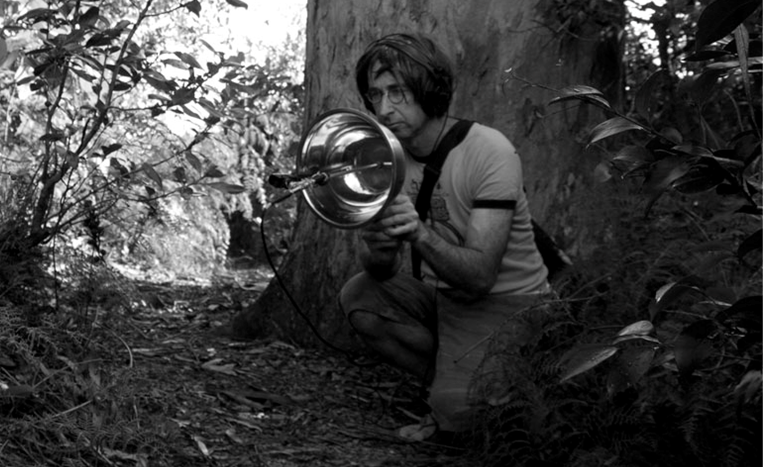
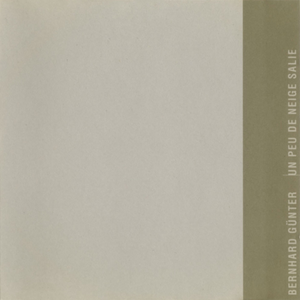
Throughout the years I came across various works that either belongs to the Lowercase genre or the Mircosound genre. The later I think is also called Glitch. It was in the early days of Internet music services, like Napster and Soulseek I came across this first artist and album belonging to this genre. Ryoji Ikeda and his album +/-. The super minimalistic sounds fascinated me. This was never an album that I listened to a lot, but from time to time I play it. Mostly occupied by other slightly more melodic music, I never took the time to dig into Microsound or Lowercase genres. I checked Spotify for a few artists you mentioned, and some of them have part of their work uploaded. With renewed fascination and interest, I'll for sure dive into this more.
Nice story, I also knew about microsound because of Ryoji Ikeda. I was looking for some "different" things to listen to in the RateYourMusic database and found about his album "Dataplex". That was the day I found about microsound and got fascinated about it.
Hahahaha how nice, both got exposed to this genre through the same artist! 🎶
Congratulations @endcore! You have completed the following achievement on the Hive blockchain and have been rewarded with new badge(s) :
Your next target is to reach 5000 upvotes.
You can view your badges on your board and compare yourself to others in the Ranking
If you no longer want to receive notifications, reply to this comment with the word
STOP